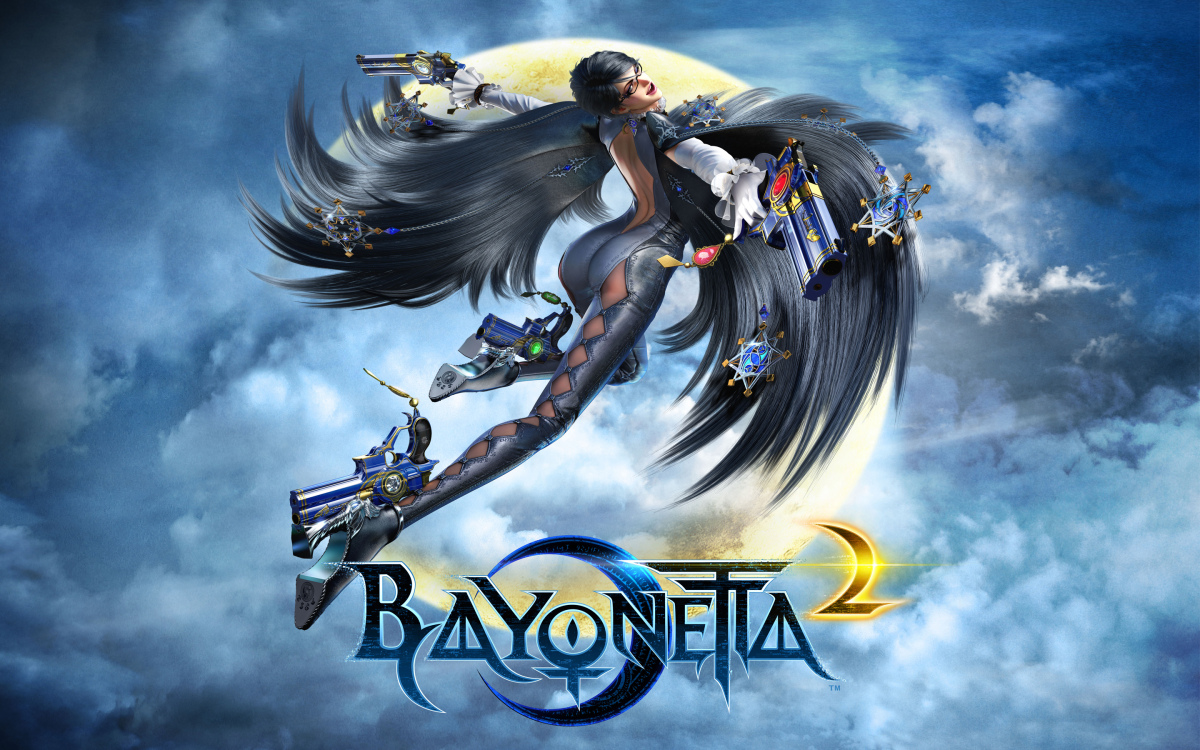Bayonetta is a franchise that has now gone from cult classic, to point of contention, to now having a clear home. So what happened to our favourite Umbra Witch?
Bayonetta is the brain child of Platinum Games, a studio famous for Okami and Devil May Cry, before leaving Capcom and becoming independent. Most of Platinum’s work has been on licensed titles (See TMNT, Transformers, Korra etc.) or as hired help for things like Nier Automata and Metal Gear Rising. Their own projects however, haven’t really hit the same heights.
Platinum’s games are very stylised and fast paced, full of action, but often have little caveats of detail and depth that open it up to a more dedicated audience. Bayonetta isn’t just Devil Mat Cry, it has layers, combos, weapons, upgrades, like a mini-RPG hack and slash.

So when SEGA published Bayonetta and let Platinum have a free reign with a game, it hit Xbox 360 and later (Though very inferior quality wise) the PS3. I didn’t play the game at this time, I had a PS3 late 2010 and so Bayonetta completely skipped over me. A shame too, as when I spoke to a retail employee when pre-ordering the sequel, they talked me into the double-pack (I was the only one there to order it too!).
Bayonetta across both platforms though, seemingly didn’t sell well enough for SEGA. A sequel was planned but never came to be, later revealed to be an issue with no one seeing value in the title, except for one publisher. Maybe the provocative nature of the game was a turn off, or maybe the marketing wasn’t very good. Either way, it didn’t hit internal expectations.

Nintendo of all people, stepped in, paying for the development of the game and publishing rights. SEGA still owned the IP, but at that moment when the Wii U was up and coming, the news Bayonetta 2 would be exclusive was shocking. To say some places reacted poorly would be an understatement, but the writing was on the wall: If the series was to continue, and Platinum was to be given complete freedom, Nintendo had to step in when no one else would.
So a double pack of both games hit the Wii U late 2014, to acclaim. For what it’s worth considering the system it was on, Bayonetta 2 sold well, and then the series went quiet. It became a cult hit, a must have on Wii U, and Nintendo was evidently very happy to allow Nintendo themed costumes and assets into both games. They even had Platinum co-develop Star Fox Zero, a title with mixed reception, but a solid game none the less.

What follows next is quite possibly the biggest indication of the future for the IP. With the cancellation of Scalebound at the hands of Microsoft earlier this year, another Platinum dreamed IP shafted, and some great work as hired help, Platinum was given, by popular fan vote as it happens, a chance for Bayonetta to enter Super Smash Bros. and they leapt at the chance, back in late 2015.
Personally to me and many others around the world, that moment sealed it. Bayonetta had found a home, and it was one Platinum was clearly more than willing to go with. The response to Bayonetta 2 and her inclusion in Super Smash Bros. alongside two amiibo figures, cemented her and the franchise as a Nintendo staple, which looking back on what people consider typical “Nintendo fare” is quite humorous.

Now regarding the future of Bayonetta as a franchise, I openly would have said maybe Bayonetta 3 wouldn’t happen, but Platinum was listed by Nintendo as a key developer for them, and Platinum themselves were teasing both Wonderful 101 (Another Nintendo aided project for Wii U) and Bayonetta.
Come along the Game Awards 2017, and at last, we were graced with the new that Bayonetta and Bayonetta 2 are coming to Nintendo Switch in February as a double pack. Great news for those who haven’t played the original on 360/PS3/PC/Wii U, and the many yet to play the sequel. It didn’t stop there though.

Bayonetta 3 has been the shock of recent weeks, with many now eagerly awaiting more news about the Nintendo Switch exclusive. It has become apparent where the future of Bayonetta lies, and while SEGA still owns the IP, Nintendo is once again letting Platinum make their dream, and fans around the world are now eagerly looking for the next showing.

That’s the real success of Bayonetta. The fans pushed it, getting her into Smash via popular vote, making the original such a cult hit, and showing that something Platinum made won’t be forgotten. As we move forward to the releases of the first two games, and eventually the third title, fans of the franchise are happy to see Bayonetta has a home in an unlikely place, with Platinum given the freedom they wanted for their own IP.
The future of Bayonetta is clear: Nintendo wants this franchise to flourish and develop, and Platinum is all too happy to do so. Bayonetta 3 will most probably be the best-selling entry in the series to date, and you can bet future Smash Bros. games will feature the witch in her combo based glory, and a fourth title will emerge.
If you enjoyed this look over the Bayonetta franchise with Behind The Game don’t forget to share and like the post, send it to your friends, let us know what you think of the series, and we will see you next time. Happy Gaming!
